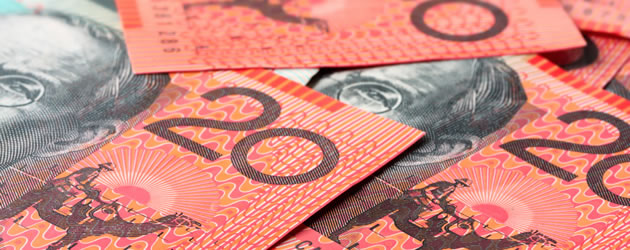The Euro to Australian Dollar (EUR/AUD) exchange rate softened by around -0.19% on Tuesday morning.
With a complete absence of domestic data to curb the trend, and with geopolitical tensions in Greece hampering investor confidence, the shared currency edged lower versus the majority of its most traded currency rivals.
The Australian Dollar, conversely, strengthened in response to positive data results. Consumer Confidence and the Conference Board Leading Index both advanced from previous figures. The gains have been somewhat sluggish, however, amid speculation of an interest rate cut from the Reserve Bank of Australia (RBA) during the next policy meeting.
The Euro to Australian Dollar (EUR/AUD) exchange rate is currently trending in the region of 1.3801.
Yesterday…
The Euro to Australian Dollar (EUR/AUD) exchange rate ticked higher by around 0.33% on Monday sfternoon.
As traders await the European Central Bank (ECB) Asset Purchase Announcement, the single currency is generally holding steady versus most of its major peers. German economic data had minimal impact, however, amid ongoing geopolitical tensions in Greece.
The Australian Dollar, meanwhile, softened versus many of its most traded currency rivals after China’s Industrial Profits cooled. Additional declination can be attributed to speculation that the Reserve Bank of Australia (RBA) will be forced to cut the benchmark interest rate in order to devalue the currency even amid a growing Sydney housing bubble.
The Euro to Australian Dollar (EUR/AUD) exchange rate is currently trending in the region of 1.3871.
Euro (EUR) Exchange Rate Holding Steady ahead of QE Announcement
Although very few feel that the ECB will change their quantitative easing program at this early stage, there is the slightest of possibilities that the institution will feel a reduction in bond-buying is appropriate given the progress seen already. There is also concern among some that the ECB will not be able to continue the program at its current pace as bonds are seemingly thin on the ground.
‘These concerns are partially offset by German bond trading at 125% of par which reduces the par amount of bonds required to meet the purchase target in market value terms and the inclusion of agencies such as KFW, Rentebank, LBW and NRW Bank,’ stated Abhishek Singhania of Deutsche Bank.
Positive data out of Germany hasn’t been enough to cause the shared currency to strengthen. This is mostly the result of ongoing concern regarding geopolitical tensions in Greece. On the month, the German Import Price Index advanced by 1.0% in March, bettering the median market forecast advance of 0.4%. On the year, the German Import Price Index declined by -1.4% in March, a narrower declination than the market consensus of -2.0%.
The Euro to Australian Dollar (EUR/AUD) exchange rate dropped to a low today of 1.3855.
Australian Dollar (AUD) Exchange Rate Softens on China’s Industrial Profits
Data out of China printed reasonably poorly on Monday morning which added downward pressure on the ‘Aussie’ (AUD). China’s Industrial Profits declined by -0.4% in March on the Year, adding to the previous reduction of -8.0%. ‘Despite the narrowed decline in profits, the operational situation of industrial enterprises remained grave,’ bureau official He Ping said in a statement, adding that sluggish demand and falling product prices have pressured earnings.
In addition to data out of China weighing on demand for the Australian Dollar, mounting speculation that the RBA will cut the cash rate in the next policy meeting has seen the ‘Aussie’ trend lower. ‘The RBA’s decision to cut rates in February could in no way be meant as a one-off,’ stated Maroochydore’s BT Financial Group chief economist Dr Chris Caton.
Euro to Australian Dollar (EUR/AUD) Exchange Rate Forecast to Fluctuate
With the ECB asset purchase announcement still to come, and with the RBA Governor Glenn Stevens due to make a speech during the Australasian session, the Euro to Australian Dollar (EUR/AUD) exchange rate is likely to fluctuate.
Tuesday may see EUR/AUD volatility with Australian and Chinese data due for publication. An absence of European data should see geopolitics drive movement.
The Euro to Australian Dollar (EUR/AUD) exchange rate climbed to a high of 1.3918 today.



